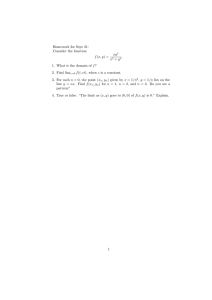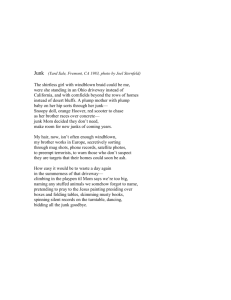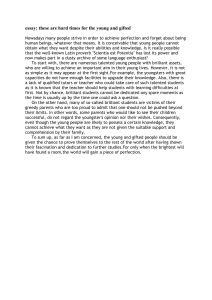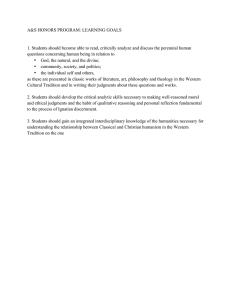In the guidelines I distributed earlier this week, I mentioned... submit a disconnected laundry list of description, but I didn't...
advertisement
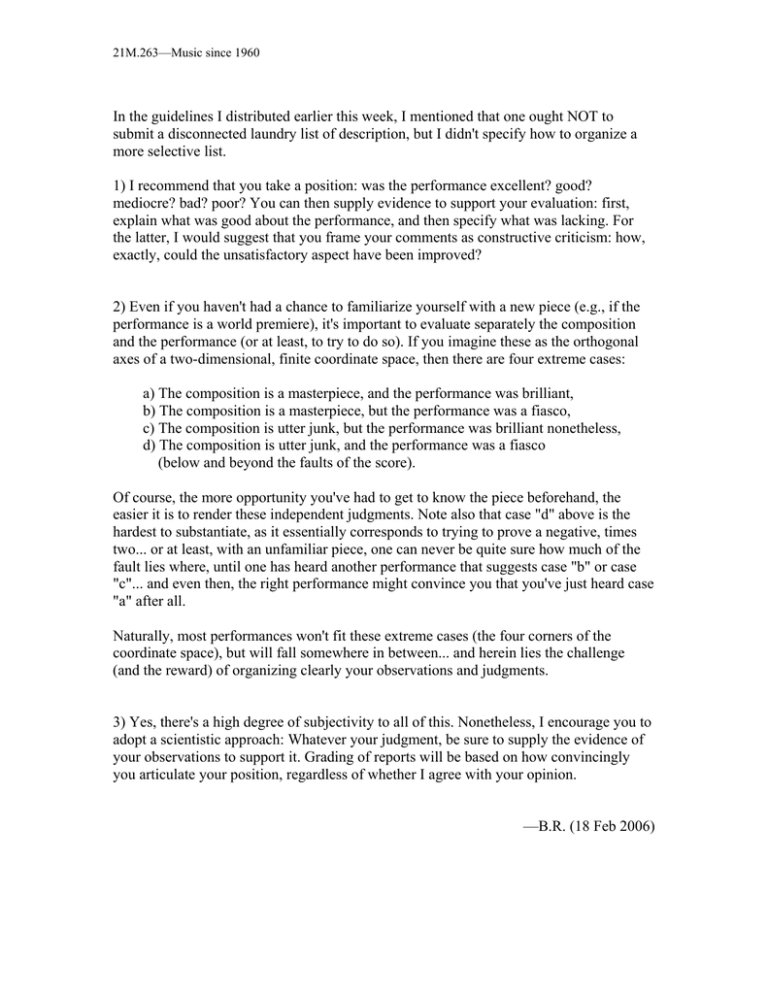
21M.263—Music since 1960 In the guidelines I distributed earlier this week, I mentioned that one ought NOT to submit a disconnected laundry list of description, but I didn't specify how to organize a more selective list. 1) I recommend that you take a position: was the performance excellent? good? mediocre? bad? poor? You can then supply evidence to support your evaluation: first, explain what was good about the performance, and then specify what was lacking. For the latter, I would suggest that you frame your comments as constructive criticism: how, exactly, could the unsatisfactory aspect have been improved? 2) Even if you haven't had a chance to familiarize yourself with a new piece (e.g., if the performance is a world premiere), it's important to evaluate separately the composition and the performance (or at least, to try to do so). If you imagine these as the orthogonal axes of a two-dimensional, finite coordinate space, then there are four extreme cases: a) The composition is a masterpiece, and the performance was brilliant, b) The composition is a masterpiece, but the performance was a fiasco, c) The composition is utter junk, but the performance was brilliant nonetheless, d) The composition is utter junk, and the performance was a fiasco (below and beyond the faults of the score). Of course, the more opportunity you've had to get to know the piece beforehand, the easier it is to render these independent judgments. Note also that case "d" above is the hardest to substantiate, as it essentially corresponds to trying to prove a negative, times two... or at least, with an unfamiliar piece, one can never be quite sure how much of the fault lies where, until one has heard another performance that suggests case "b" or case "c"... and even then, the right performance might convince you that you've just heard case "a" after all. Naturally, most performances won't fit these extreme cases (the four corners of the coordinate space), but will fall somewhere in between... and herein lies the challenge (and the reward) of organizing clearly your observations and judgments. 3) Yes, there's a high degree of subjectivity to all of this. Nonetheless, I encourage you to adopt a scientistic approach: Whatever your judgment, be sure to supply the evidence of your observations to support it. Grading of reports will be based on how convincingly you articulate your position, regardless of whether I agree with your opinion. —B.R. (18 Feb 2006)


